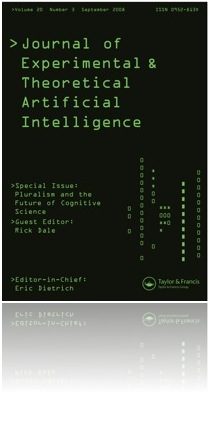The possibility of a pluralist cognitive science
Rick Dale, University of Memphis
A case for a pluralistic approach to cognitive science is sketched. It is argued that cognitive scientists should take seriously the possibility that a single, unified framework for all of cognition is an unrealistic expectation for its diverse interdisciplinary goals and subject matter. A pluralistic approach instead seeks ways of integrating the multiple perspectives that have provided explanatory success in loosely interconnected sub-domains of cognitive phenomena. Research strategies recommended by this approach are discussed, with review of research currently carrying out such strategies and others that may hold promise for the future. The paper ends with a discussion of seeking closer integration of the inquirer into consideration of which explanatory framework to choose. A systematic exploration of this transactional approach to cognitive science may grant coherence to pluralism even as it embraces diverse schemes of explanation.
On the nature of minds, or: Truth and consequences
Shimon Edelman, Cornell University
Are minds really dynamical or are they really symbolic? Because minds are bundles of computations, and because computation is always a matter of interpretation of one system by another, minds are necessarily symbolic. Because minds, along with everything else in the universe, are physical, and insofar as the laws of physics are dynamical, minds are necessarily dynamical systems. Thus, the short answer to the opening question is "yes." It makes sense to ask further whether some of the computations that constitute a human mind are constrained by functional, algorithmic, or implementational factors to be essentially of the discrete symbolic variety (even if they supervene on an apparently continuous dynamical substrate). I suggest that here too the answer is "yes" and discuss the need for such discrete, symbolic cognitive computations in communication-related tasks.
SAL: An explicitly pluralistic cognitive architecture
David J. Jilk, eCortex Inc.
Christian Lebiere, Carnegie Mellon University
Randall C. O’Reilly, University of Colorado Boulder
John R. Anderson, Carnegie Mellon University
The SAL cognitive architecture is a synthesis of two well-established constituents: ACT-R, a hybrid symbolic-subsymbolic cognitive architecture, and Leabra, a neural architecture. These component architectures have vastly different origins yet suggest a surprisingly convergent view of the brain, the mind, and behavior. Furthermore, both of these architectures are internally pluralistic, recognizing that models at a single level of abstraction cannot capture the required richness of behavior. In this paper, we offer a brief principled defense of epistemological pluralism in cognitive science and artificial intelligence, and elaborate on the SAL architecture as an example of how pluralism can be highly effective as an approach to research in cognitive science.
|
 |
